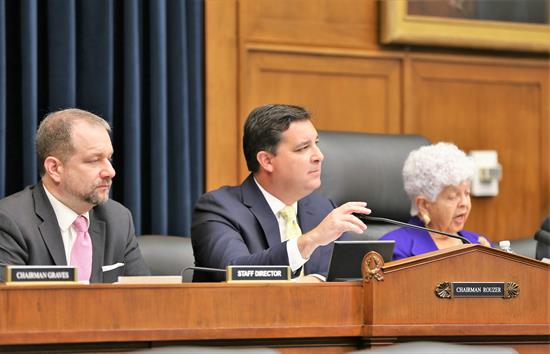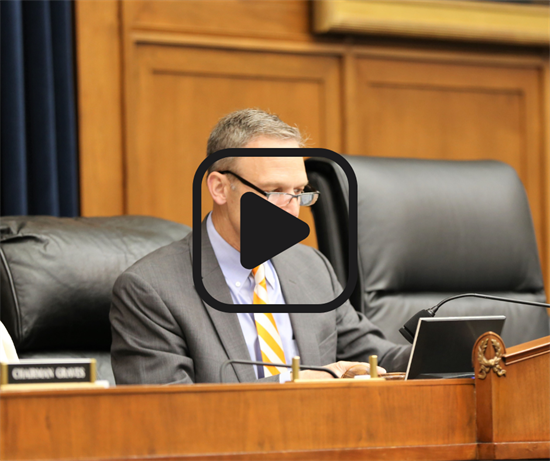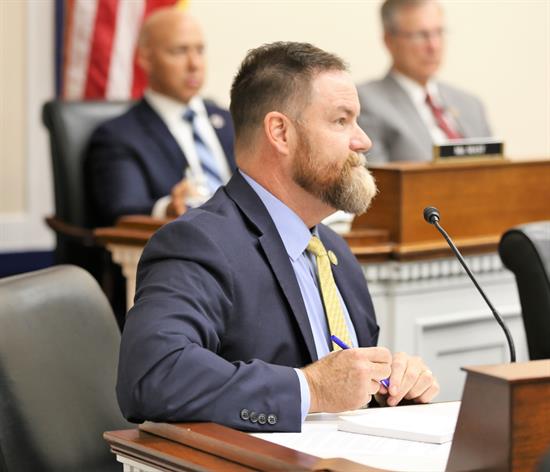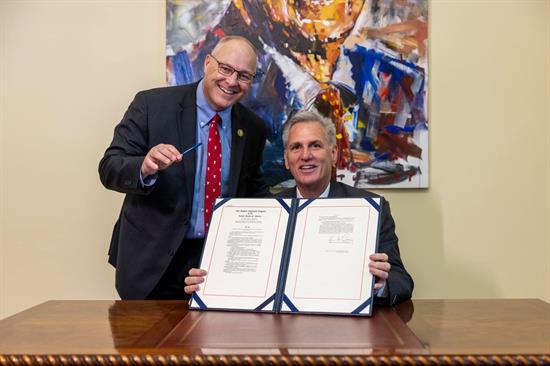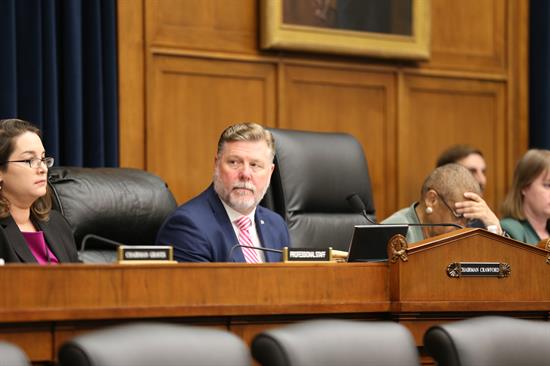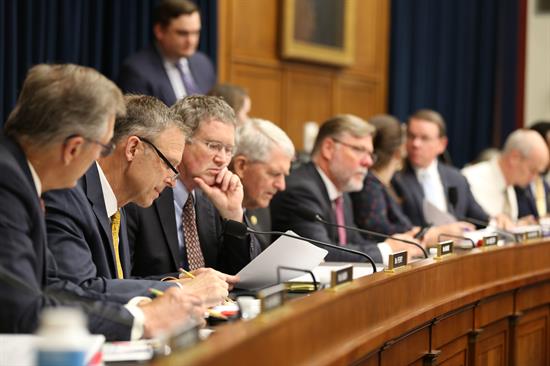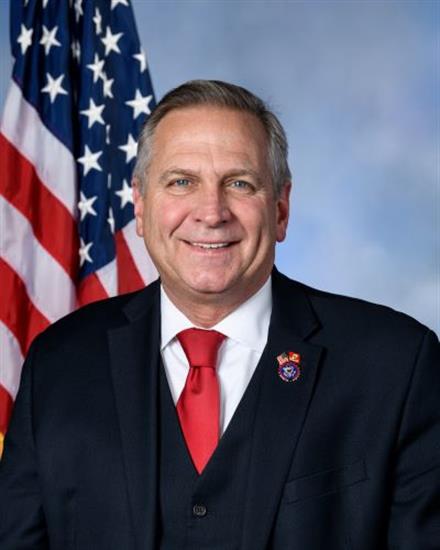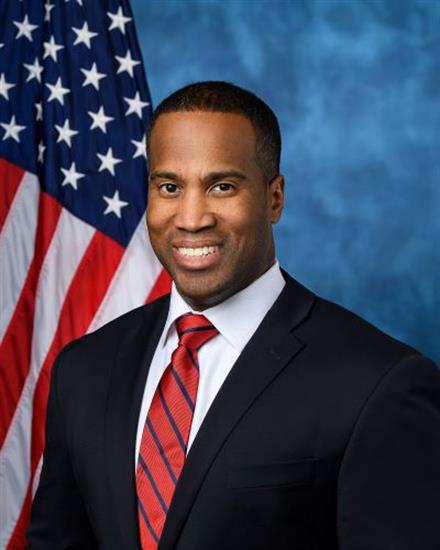
| THE RUNWAY: MAY RECAP |
| In this Issue: | |||||
|
| In a jam-packed month throughout Congress, the Transportation and Infrastructure Committee continued pursuing its active agenda by holding hearings on the potential need for permitting reforms under the Clean Water Act, ensuring that FEMA focuses on its core missions of disaster preparedness and response, recruitment and retention in the U.S. Coast Guard and the U.S. mariner shortage, oversight of the National Emergencies Act, and challenges facing our supply chain. Additionally, the T&I Committee held a markup where it approved many meaningful proposals to strengthen our Nation’s supply chain. In addition, the Fiscal Responsibility Act included needed project streamlining permitting reforms that T&I Republicans have long supported. |
|
| COMMITTEE ACTIVITY | |
|
|
Examining the Future of the Clean Water Act Subcommittee Chairman David Rouzer opened the May 16th hearing of the Subcommittee on Water Resources and Environment by stating that, “For just over half a century, the Clean Water Act (CWA) has functioned to improve the quality of rivers, lakes, and streams throughout the country. Congress recognized that we had a major issue with the quality of our Nation’s waters….” The hearing, entitled “The Next Fifty Years of the Clean Water Act: Examining the Law and Infrastructure Project Completion,” highlighted the need to improve project permitting processes while maintaining critical water protections. Additional information about the hearing is available here. |
|
Evaluating FEMA’s Strategic Plan on Disaster Preparedness The Subcommittee on Economic Development, Public Buildings, and Emergency Management held a hearing on May 17th entitled “The Impacts of FEMA’s Strategic Plan on Disaster Preparedness and Response.” The hearing focused on FEMA’s strategic plan for 2022 through 2026, which is the first strategic plan that prioritizes equity and climate change over actual disaster readiness and response. In his opening remarks, Subcommittee Chairman Scott Perry said, “FEMA’s core mission is to help people before, during, and after disasters. The Biden Administration is advancing a woke agenda focused on diversity and inclusion, to the detriment of their core missions.” Additional information about the hearing is available here |
|
|
|
| An Examination of the National Emergencies Act There are currently 41 ongoing emergency declarations under the National Emergencies Act (NEA) that date back to the Carter Administration, which Congress has never actively reviewed. On May 24th, the Subcommittee on Economic Development, Public Buildings, and Emergency Management held a hearing entitled “Never Ending Emergencies – An Examination of the National Emergencies Act.” The hearing marked the first time the Subcommittee held a hearing to examine the NEA. During the hearing, members of the Subcommittee questioned the witnesses on the risks associated with the NEA and potential solutions Congress could pursue to check presidential powers when it comes to emergency declarations. Additional information about the hearing is available here. |
|
Recruitment and Retention in the United States Coast Guard On Thursday, May 11th, the Subcommittee on Coast Guard and Maritime Transportation held a hearing entitled “Assessing the Shortage of United States Mariners and Recruitment and Retention in the United States Coast Guard.” Four witnesses provided testimony during the hearing, including representatives of the U.S. Coast Guard, the U.S. Maritime Administration, the Government Accountability Office, and the RAND Corporation. The hearing focused on what is driving a manpower shortage in the Coast Guard and Merchant Marine and what can be done to address these shortages. Additional information about the hearing is available here. |
|
|
|
| FLOOR ACTIVITY | |
The NOTAM Improvement Act of 2023 In January of this year, Rep. Pete Stauber introduced the NOTAM Improvement Act of 2023, which directs the Federal Aviation Administration (FAA) to establish the FAA Task Force on NOTAM Improvement (NOTAMs are notices to pilots that include critical safety information). The legislation aims to improve aviation safety by requiring clearer safety notifications to pilots and updates to the NOTAM system. The bill passed the House by suspension on May 22nd, and now awaits the President’s signature. |
|
|
|
| STRENGTHENING OUR SUPPLY CHAIN | |
|
|
A supply chain is defined as a network of making and selling commercial goods, from the supply of materials and manufacture of goods through their transportation, distribution, and sale. A well-managed supply chain results in the efficient use of resources, reduced costs, and a faster production cycle. The COVID-19 pandemic and misguided policies by the Biden Administration contributed to significant disruptions to our supply chain and historic inflation levels. This month, the Transportation and Infrastructure Committee continued its series of hearings to examine issues plaguing our supply chain and approved a package of bills to address these challenges. |
|
Challenges Facing the National Trucking Industry As part of the Committee’s ongoing efforts to address the supply chain crisis, the Subcommittee on Highways and Transit held a hearing focusing on the challenges facing our Nation’s trucking industry. In his opening statement, Subcommittee Chairman Rick Crawford said, “Simply put, our economy requires a properly functioning trucking industry. More than 70 percent of our Nation’s freight tonnage is moved by the trucking industry every year, and more than 80 percent of our communities get their goods exclusively by trucks.” Additional information about the hearing is available here. |
|
|
|
| Getting Freight Rail Back on Track Freight railroads carry nearly one-third of the Nation’s freight. In May, Subcommittee on Railroads, Pipelines, and Hazardous Materials Chairman Troy Nehls (R-TX) led a hearing titled “Getting Back on Track: Exploring Rail Supply Chain Resilience and Challenges.” During the hearing, Subcommittee members examined the freight railroad industry’s role in supporting the supply chain and discussed current challenges to the industry in meeting supply chain goals and future steps to address these issues. During the hearing, members of the Subcommittee heard testimony from the Association of American Railroads, the American Short Line and Regional Railroad Association, the American Chemistry Council, the Reason Foundation, and the Transportation Trades Department, AFL-CIO. Additional information about the hearing is available here. |
|
Full Committee Markup On May 23rd, the T&I Committee approved a slate of measures to strengthen the Nation’s supply chain and help protect Americans and the economy from future disruptions. A total of 17 bills were approved by the Committee, many passing with bipartisan support. Following the markup, T&I Chairman Sam Graves (R-MO) said, “The Biden Administration’s big spending, anti-energy agenda led to sky high inflation and exacerbated a critical supply chain crisis. Today, the Committee took action to strengthen our supply chain in numerous ways by removing regulatory barriers, improving supply chain efficiency, and promoting smarter infrastructure investment.” The complete list of legislation approved during the markup is available here. |
|
|
|
| MEMBERS SPOTLIGHT | |
|
|
| Representative Mike Bost is a fifth-term Congressman from Illinois’ 12th District. During the full Committee markup on May 23rd, the Committee approved Rep. Bost’s bipartisan bill, the Truck Parking Safety Improvement Act. According to a study commissioned by the Federal Highway Administration, 98 percent of truck drivers say they regularly have trouble finding safe parking, and are forced to park on an exit ramp, on the side of an interstate, or other unsafe areas. On average, truckers are forced to spend nearly an hour per day simply searching for adequate parking instead of moving their freight toward its destination. The legislation addresses the lack of truck parking by allocating funds to create thousands of safe parking spots for trucks and make necessary improvements to existing truck parking areas.
Congressman Bost grew up in a family trucking business. After introducing the bill, he released a statement saying, “I understand how difficult, and oftentimes dangerous, it can be when America’s truckers are forced to push that extra mile in search of a safe place to park. By expanding access to parking options for truckers, we are making our roads safer for all commuters and ensuring that goods and supplies are shipped to market in the most efficient way possible.” Rep. Bost proudly serves on the House Transportation and Infrastructure Committee, the Committee on Agriculture, and is the Chairman of the Committee on Veteran’s Affairs. |
|
|
|
| First-term Congressman John James represents Michigan’s 10th congressional district. Rep. James introduced H.R. 3399, the Soo Locks Security and Economic Reporting Act of 2023, which was approved by Committee with bipartisan support during the May 23rd supply chain markup. The bill requires relevant government agencies to examine and report on any security deficiencies that pertain to the Soo Locks, located at Sault Ste. Marie, Michigan. Following the bill’s passage, Rep, James stated, “Michigan is the hub of America’s vehicle and military industry. We’re also home to the third-largest land border in the country. Defending our national security and fortifying our economy transcends partisan politics. I’m grateful to have bipartisan support from both Rep. Scholten and Rep. Bergman in our effort to protect the Soo Locks for generations to come." In addition to the Transportation and Infrastructure Committee, Rep. James serves on the Foreign Affairs Committee and the Education and Workforce Committee. |
|
| IN THE NEWS | |
Chairman Sam Graves in The Washington Times: Transportation and Infrastructure Committee will deliver supply chain solutions Americans Deserve Transport Topics: House Committee Tackles Workforce Federal Permitting Issues Roll Call: Supreme Court ruling will forces changes to ‘waters of US’ rule Land Line: Truck parking bill advances through House committee National Review: House Republican Leadership Touts ‘Transformative Permitting Reform’ in Debt-Ceiling Deal |
|
|
